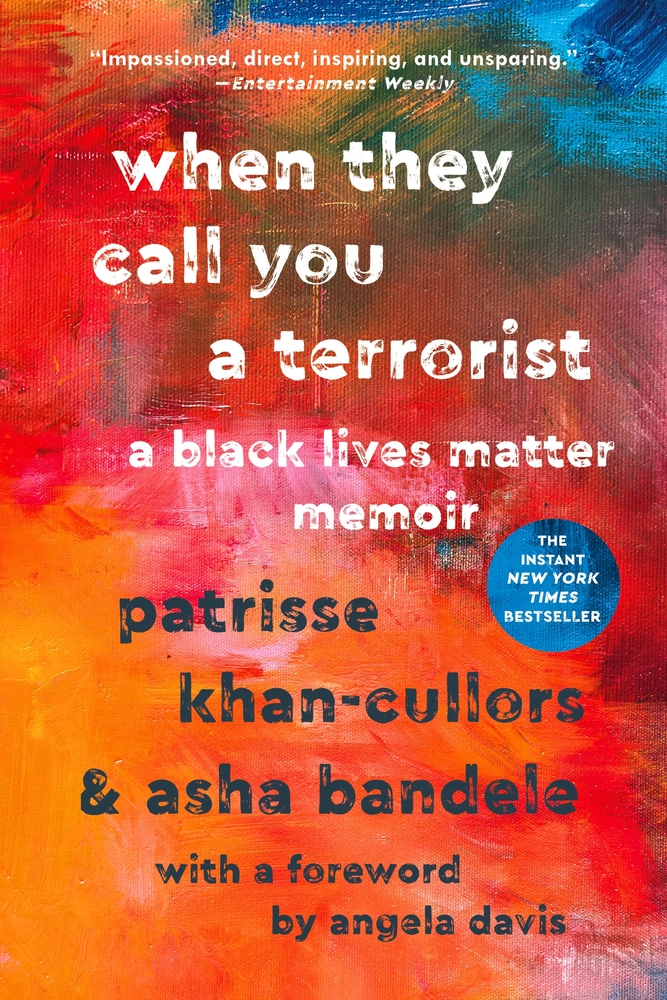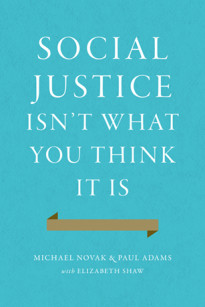Introducing Bia Labate, PhD - Soltara Science & Culture Coordinator
By
Bia Labate — 2018
YOU MIGHT ALSO LIKE
CLEAR ALL
BY TOPIC
BY TEACHER
BY TYPE
FILTER

TOPIC
- Racial Justice (56)
- Spiritual Healing (44)
- Ayahuasca (41)
- Plant Spirit Medicine (41)
- Psilocybin (41)
- LSD (39)
- Racism (37)
- BIPOC Well-Being (35)
- Altered States (34)
- Black Well-Being (32)
- Community Healing (32)
- MDMA (30)
- Somatic Practices (27)
- Drug Policy (25)
- Racial Healing (25)
- Social Responsibility (25)
- Spirituality and Politics (25)
- Racial Discrimination (24)
- Poverty/Economic Inequality (23)
- Indigenous Healing Approaches (22)
- PTSD (19)
- Economic Justice (18)
- DMT (17)
- Trauma Healing (17)
- Mind-Body Connection (15)
- Environmental Justice (14)
- South American Shamanism (14)
- Visions and Hallucinations (14)
- LGBTQIA Well-Being (13)
- Nonviolence (13)
- Connection with Nature (12)
- Depression (12)
- Fellowship and Community (12)
- Female Empowerment (12)
- Incarceration (12)
- Neuroscience (12)
- Religious Experience (12)
- Communication Skills (11)
- Consciousness (11)
- Interdependence (11)
- Microdosing (11)
- Christianity (10)
- Disabled Well-Being (10)
- Freedom (10)
- Meditation (10)
- Memoir (10)
- Transcendent Experience (10)
- Women’s Rights (10)
- Emotional and Mental Health (9)
- Energy Healing (9)
- Ketamine (9)
- Self-Care (9)
- Trauma (9)
- Buddhism (8)
- Cancer (8)
- Cross-Cultural Dynamics (8)
- Gender Discrimination (8)
- LGBTQIA Sexuality (8)
- Plant-Based Medicine (8)
- Self-Healing (8)
- Women’s Well-Being (8)
- Athlete Well-Being (7)
- Ecospirituality (7)
- Feminism (7)
- Gender Justice (7)
- Mental Health Challenges (7)
- Resilience (7)
- Shamanism (7)
- Transformation (7)
- Collective Trauma (6)
- Compassion (6)
- Discrimination (6)
- Ego Dissolution (6)
- Embodiment (6)
- Empowerment (6)
- Indigenous Rights (6)
- Shamanic Healing (6)
- Youth Activism (6)
- Awareness (5)
- Burnout (5)
- Hope (5)
- Imagination and Creativity (5)
- Indigenous Well-Being (5)
- Masculine/Feminine Dynamics (5)
- Neoshamanism (5)
- Psychology (5)
- Speaking Your Truth (5)
- Addiction Recovery (4)
- Alcohol Addiction (4)
- Anxiety (4)
- Belonging (4)
- Breathwork (4)
- Building Culture (4)
- Cannabis/CBD (4)
- Creative Well-Being (4)
- Environmental Exploitation (4)
- Guided Meditation (4)
- Identity (4)
- Immigration and Assimilation (4)
- Inner Life (4)
- Self-Discovery (4)
- Spiritual Growth (4)
- Spiritual Practices (4)
- Spirituality and Health (4)
- Tibetan Buddhism (4)
- Unity (4)
- Yoga (4)
- Access to Education (3)
- Anger (3)
- Christian Mysticism (3)
- Chronic Health Conditions (3)
- Chronic Pain (3)
- Climate Change (3)
- Clinical Depression (3)
- Comparing Belief Traditions (3)
- Compassion Fatigue (3)
- Conflict Resolution (3)
- Connection (3)
- Courage (3)
- Finding Meaning (3)
- Gender and Spirituality (3)
- Global Challenges (3)
- Goal Setting (3)
- Grief (3)
- Healing Approaches (3)
- Holism (3)
- Homophobia (3)
- Intergenerational Trauma (3)
- Letting Go (3)
- Mindfulness (3)
- Moral Philosophy (3)
- Offering Support to Others (3)
- Race and Gender (3)
- Racial Identity (3)
- Reiki (3)
- Science and Spirituality (3)
- Self-Actualization (3)
- Self-Realization (3)
- Self-Reckoning (3)
- Self-Reflection Practices (3)
- Smoking Addiction (3)
- Social Presence (3)
- Social Psychology (3)
- Spiritual Life (3)
- Spiritual Quest (3)
- Suffering (3)
- Sustainability (3)
- Transpersonal Psychology (3)
- Values (3)
- Veteran Well-Being (3)
- Whiteness (3)
- Witchcraft (3)
- Young Adult Well-Being (3)
- AIDS (2)
- Animal Connection (2)
- Archetypes (2)
- Authenticity (2)
- Body Image (2)
- Bodywork (2)
- Crystals (2)
- Dharma (2)
- Diet and Nutrition (2)
- Dreamwork (2)
- Ego (2)
- Empathy (2)
- Enlightenment (2)
- Facing Own Death (2)
- Faith and Identity (2)
- God (2)
- Healing Touch (2)
- Holotropic Breathwork (2)
- Human Potential (2)
- Inspiration (2)
- Latinx Well-Being (2)
- Leadership (2)
- Leaving a Religion (2)
- Living with Illness (2)
- Love (2)
- Mindfulness Practices (2)
- Movement Meditation (2)
- Neuroplasticity (2)
- Optimism (2)
- Other Dimensions and Beings (2)
- Othering (2)
- Past Life Regression (2)
- Ritual (2)
- Rolfing (2)
- Self-Development (2)
- Self-Expression (2)
- Sex (2)
- Sexual Assault or Abuse (2)
- Shadow (2)
- Somatic Experiencing (2)
- Spiritual Awakening (2)
- Spiritual Crisis (2)
- Spiritual Development (2)
- Storytelling (2)
- Stress Management (2)
- Suicide (2)
- The Feldenkrais Method (2)
- Transgender Well-Being (2)
- Traumatic Grief (2)
- Unconscious Bias (2)
- Wicca (2)
- Witch (2)
- Acceptance (1)
- Addiction (1)
- Afterlife (1)
- Aging (1)
- Alexander Technique (1)
- Art Therapy (1)
- Aura (1)
- Autism (1)
- Autoimmune Disease (1)
- Body Mapping (1)
- Body Positivity (1)
- Brain Health (1)
- Buddha Nature (1)
- Building Character (1)
- Caregiver Well-Being (1)
- Chakras (1)
- Children’s Well-Being (1)
- Chiropractic (1)
- Chronic Anxiety (1)
- Cognitive Psychology (1)
- Collaboration (1)
- Conscience (1)
- Conscious Evolution (1)
- Death and Dying (1)
- Disconnection (1)
- Drug Addiction (1)
- Ego Transcendence (1)
- Emotional Intelligence (EQ) (1)
- Emotional Labor (1)
- Endurance (1)
- Energy Balancing (1)
- Entrepreneurship (1)
- Epigenetics (1)
- Exercise (1)
- Failure (1)
- Faith (1)
- Fear (1)
- Forgiveness (1)
- Friendship (1)
- Generational Healing (1)
- Generosity (1)
- Genetics (1)
- Global Food Supply (1)
- Grit (1)
- Habits of Mind (1)
- Handling a Loved One’s Illness (1)
- Happiness (1)
- Herbal Supplementation (1)
- Higher Calling (1)
- Homeopathy (1)
- Honoring Emotion (1)
- Humanitarian Aid/Relief Work (1)
- Ibogaine (1)
- Inflammation (1)
- Inner Peace (1)
- Insomnia (1)
- Integrative Medicine (1)
- Intention (1)
- Intimacy (1)
- Intuition (1)
- Islam (1)
- Joy (1)
- Jungian Analysis (1)
- Karma (1)
- Learning Styles (1)
- LGBTQIA Children (1)
- LGBTQIA Parents (1)
- Life Challenges (1)
- Loneliness (1)
- Magic (1)
- Magick (1)
- Managing Energy (1)
- Marriage (1)
- Mentoring (1)
- Motivation (1)
- Mysticism (1)
- Native American Beliefs (1)
- Near-Death Experience (1)
- Neopaganism (1)
- Neurodiversity (1)
- Non-Duality (1)
- Nonbinary Well-Being (1)
- Oneness (1)
- Paganism (1)
- Past Lives and Reincarnation (1)
- Patience (1)
- Peak Performance (1)
- Performance Pressure (1)
- Philosophical Approaches (1)
- Poetry (1)
- Prayer (1)
- Psychology and Spirituality (1)
- Quantum Physics (1)
- Relationship Challenges (1)
- Relationship with Time (1)
- Romantic Relationships (1)
- Sacred Feminine (1)
- Search for Purpose (1)
- Self-Esteem (1)
- Self-Love (1)
- Sexual Health (1)
- Sexuality (1)
- Shame (1)
- Sound Healing (1)
- Spiritual Direction (1)
- Talk Therapy (1)
- The Divine (1)
- Trust (1)
- Visualization (1)
- Vulnerability (1)
- Walking Meditation (1)
- War (1)
- Wholeness (1)
- Work Challenges (1)
- Yoga Therapy (1)
- Zen Buddhism (1)
FILTER

TEACHER
- adrienne maree brown (6)
- Reginald Ray (6)
- Rick Doblin (6)
- Albert Hofmann (5)
- Audre Lorde (5)
- Carl Hart (5)
- Michael Pollan (5)
- Arundhati Roy (4)
- Cornel West (4)
- Don Hanlon Johnson (4)
- Francoise Bourzat (4)
- Gloria Steinem (4)
- Pope Francis (4)
- Rebecca Solnit (4)
- Rick Strassman (4)
- Stanislav Grof (4)
- Timothy Leary (4)
- Amanda Feilding (3)
- angel Kyodo williams (3)
- Ann Shulgin (3)
- Arnold Mindell (3)
- Bia Labate (3)
- Crystal Jones (3)
- Daniel J. Benor (3)
- Dennis McKenna (3)
- Graham Hancock (3)
- Jacqui Lewis (3)
- Joan Chittister (3)
- Lama Rod Owens (3)
- Marshall Rosenberg (3)
- Natalie Ginsberg (3)
- Nelson Mandela (3)
- Ralph Metzner (3)
- Simone Weil (3)
- Valarie Kaur (3)
- Alice Walker (2)
- Christine Caldwell (2)
- Hildegard von Bingen (2)
- James Baldwin (2)
- Jean Shinoda Bolen (2)
- Jeremy Narby (2)
- Kelly McGonigal (2)
- Liz Theoharis (2)
- Mark Haden (2)
- Parker J. Palmer (2)
- Rachel Naomi Remen (2)
- Ram Dass (2)
- Rhonda Magee (2)
- Russell Brand (2)
- Saeed Jones (2)
- Sonia Sanchez (2)
- Stephen Harrod Buhner (2)
- The Dalai Lama (2)
- Adrienne Rich (1)
- Alan Watts (1)
- Alberto Villoldo (1)
- Aldous Huxley (1)
- Andrew Weil (1)
- Arielle Schwartz (1)
- Barbara Brennan (1)
- bell hooks (1)
- Billie Jean King (1)
- Brian Weiss (1)
- Caroline Myss (1)
- Charles Tart (1)
- Chelsey Luger (1)
- Christopher Penczak (1)
- Damien Echols (1)
- Desmond Tutu (1)
- Diane di Prima (1)
- don Oscar Miro-Quesada (1)
- Elizabeth Cronise McLaughlin (1)
- Frances Vaughan (1)
- Gabor Maté (1)
- Hank Wesselman (1)
- Ibram X. Kendi (1)
- Ida Rolf (1)
- James Fadiman (1)
- James H. Cone (1)
- James Oschman (1)
- Janet Farrar (1)
- Jean Houston (1)
- Jeff Brown (1)
- Jesus (1)
- Joan Halifax (1)
- Joanna Macy (1)
- Joe Dispenza (1)
- Jon Kabat-Zinn (1)
- Joseph Tafur (1)
- Judy Hall (1)
- Julieta Casimiro (1)
- Kathlyn Hendricks (1)
- Kathryn Budig (1)
- Ken Kesey (1)
- Ken Wilber (1)
- LaRayia Gaston (1)
- Larry Dossey (1)
- Louise Erdrich (1)
- Malcolm X (1)
- Matthew Fox (1)
- Michelle Cassandra Johnson (1)
- Misty Copeland (1)
- Moses (1)
- Nina Simons (1)
- Pamela Miles (1)
- Paramahansa Yogananda (1)
- Pema Khandro (1)
- Phillip Moffitt (1)
- Resmaa Menakem (1)
- Rha Goddess (1)
- Rick Hanson (1)
- Risa Kaparo (1)
- Robert Augustus Masters (1)
- Robert Jesse (1)
- Robert Thurman (1)
- Rosalind Watts (1)
- Satish Kumar (1)
- Scott Cunningham (1)
- Sharon Salzberg (1)
- Starhawk (1)
- Stephanie Y. Evans (1)
- Stephen Levine (1)
- Terence McKenna (1)
- Thich Nhat Hanh (1)
- Traci Blackmon (1)
- Winona LaDuke (1)
- Zainab Salbi (1)











